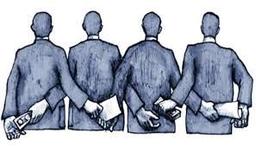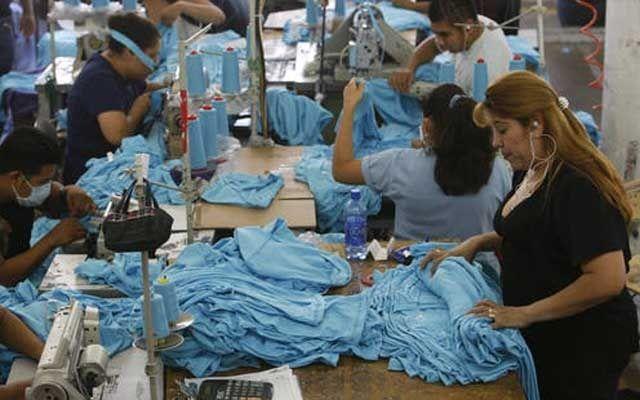
Ethics and Ethical Dilemmas
Quiz by Manie Spoelstra
Feel free to use or edit a copy
includes Teacher and Student dashboards
Measure skillsfrom any curriculum
Measure skills
from any curriculum
Tag the questions with any skills you have. Your dashboard will track each student's mastery of each skill.
With a free account, teachers can
- edit the questions
- save a copy for later
- start a class game
- automatically assign follow-up activities based on students’ scores
- assign as homework
- share a link with colleagues
- print as a bubble sheet
10 questions
Show answers
- Q1Next 3 questions based on this video and the case below: You, a USA citizen, started a factory in Honduras where you produce T-shirts for the USA market. You hold about 30% of the shares while the rest of the shares are held by several individuals tied to the clothing business in the USA. You employ about 500 workers. You supply some major clothing stores in the USA with a few unique brands. You believe that the main purpose of your business in Honduras is to create profit for all shareholders and stay strictly within Honduras laws. Recently, you have been heavily criticized on various media when it became known that you pay workers about $2 per day and some, who work double shifts (totaling 16 hours) up to $4 per day. You explained that that is more than the average rate paid for such work in Honduras and every day a line of unemployed people form up outside your employment office to apply for work. The following three questions are based on the paragraph above: Question 1: The ethical approach is either typical of a naive immoralist, a utilitarian, Kantian, or a Friedman approach.UtilitarianKantianNaive immoralistFriedmanVideo300s
- Q2Question 2: What can you do to improve your image in the USA?Leave HondurasLimit overtime, raise wages slightly, contribute to the quality of life of workers.Hire a PRODo nothing60s
- Q3Question 3: Should the buyers of the garments in the USA be held responsible too?Buyers should ensure that no unethical actions determine the low cost of their wares and make an attempt to help or guide those suppliers.They have nothing to do with thatThey should find other suppliers, preferably in the USATheir job is, as Friedman stated, to make profits too and stay within USA law.60s
- Q4A family member of the building and safety inspection agency in Kenya told you confidentially that the necessary permits will be granted in two days if you pay a $1000 bribe to the inspector. This implies that your garment factory in Kenya could start to appoint and train the 1000 workers that will be needed. If you do not bribe him/her, you know that it can take up to 9 months for the needed permits to be issued and even a court case on top of it. What will you do? Question 4:Refuse to pay the bribe and report this to the Kenyan Government.Close your business and go back to the USAMake a 'charitable donation' towards a good cause of the inspectors' choice through your lawyer.Pay the bribe.300s
- Q5Question 5: If you accept that you have to live by the practice of 'greasing the wheels' to get through bureaucratic processes are endemic and the way that everyone survives in Kenya, you follow which ethical approach?FriedmanThe Kantian doctrineCultural RelativismAn Ethnocentric approach.60s
- Q6Question 6: What international bodies act against bribery?Transparency International, The World Bank, United Nations, The International Court of Justice.The USA Embassy.The local police.Host country Government.60s
- Q7Next 3 questions based on this video and the following info: You are the CEO of one of the major electronic companies in the USA. Your profit after tax in 2019 was about $50 Billion. You are heavily dependent on rechargeable batteries, which you purchase from a Chinese supplier, QMC. Recently you came under heavy criticism from Amnesty International and several other community groups after it was found that QMC buys all their Cobalt (essential in the production of rechargeable batteries from Cobalt mines in the DRC (the Democratic Republic of the Congo). Conditions in the mines are terrible with kids as young as 5 years old, working in the mines, which are mostly dug by hand without any protective equipment. After consulting with your senior managers, you decide to: Question 7: Will you try to find a new supplier?NoYesVideo300s
- Q8Question 8: So, if you are not going to search for alternative suppliers, what can you do to improve conditions in the Cobalt mines in the DRC?Appoint lobbyists to influence lawmakers to lay down strict laws and rules on mining safety of USA company supply chains.Make a substantial investment into a charity that is known to help improve the lives of people in the DRC.Spend a few $million to build proper housing and schools around the mining area in the DRC, and use your influence to improve safety in the mines.Appoint a committee to look into buying the mine and operating it yourself.60s
- Q9Question 9: How can you prevent child labor (often the family need the money to survive) in the DRC and still help the family earn a living wage.Report this to WHO, UNESCO, and others who can perhaps make a difference.Pay incentives to all workers if they do not employ children under 15 years of age.Send US workers to do the mining.Use all your influence internationally, through the media, and in the DRC60s
- Q10Question 10: Which doctrine emphasizes the dignity of your workers as the main objective.The Utilitarian doctrineEthnocentric doctrinesFriedmanEmmanuel Kant60s
